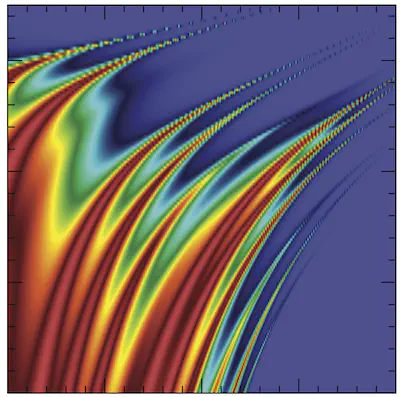Anomalous light transport induced by deeply subwavelength quasiperiodicity in multilayered dielectric metamaterials

Abstract
For dielectric multilayered metamaterials, the effective-parameter representation is known to be insensitive to geometrical features occurring at deeply subwavelength scales. However, recent studies on periodic and aperiodically ordered geometries have shown the existence of certain critical parameter regimes where this conventional wisdom is upended, as the optical response of finite-size samples may depart considerably from the predictions of standard effective-medium theory. In these regimes, characterized by a mixed evanescent/propagating light transport, different classes of spatial (dis)order have been shown to induce distinctive effects in the optical response, in terms of anomalous transmission, localization, enhancement, absorption, and lasing. Here we further expand these examples by considering a quasiperiodic scenario based on a modified-Fibonacci geometry. Among the intriguing features of this model there is the presence of a scale parameter that controls the transition from perfectly periodic to quasiperiodic scenarios of different shades. Via an extensive parametric study, this allows us to identify the quasiperiodicity-induced anomalous effects, and to elucidate certain distinctive mechanisms and footprints. Our results hold potentially interesting implications for the optical probing of structural features at a resolution much smaller than the wavelength, and could also be leveraged to design novel types of absorbers and low-threshold lasers.